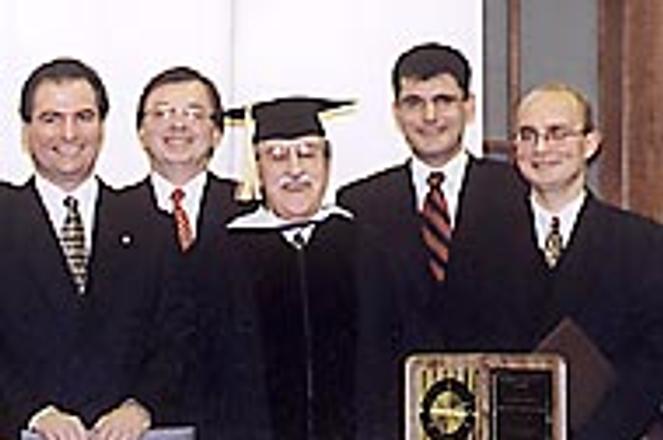WEMBA's business administration course has had many successes.photo: Courtesy WEMBA
Providing students with managerial, economic and language skills, Master of Business Administration programmes (MBA) are becoming the preferred way of studying in Slovakia.
With the consolidation of the Slovak corporate sector and an increasing number of foreign firms entering the local market, such programmes have become popular among managers and young people who lack work experience.
"MBA graduates find better jobs, especially in foreign firms and abroad," said Katarína Bachratá, MBA project coordinator at City University Bellevue (CU) in Bratislava, one of the three schools in Slovakia that provide MBA courses in cooperation with foreign universities.
"Many companies themselves invest money in sending employees to these courses.
"They hope to increase their skills and to keep them from leaving to other firms," said Erika Šterbáková, project co-ordinator of the business administration WEMBA programme at Comenius University's Faculty of Management in Bratislava.
Enrolment rates have climbed for MBA weekend courses in recent years despite relatively expensive fees for Slovaks and requirements that students already hold bachelor degrees.
About 150 students have graduated from CU's two-year MBA programme since 1996. The programme consists of 15 courses, $259 each. While in 2000, CU opened a single MBA class, higher than anticipated interest this year led administrators to open two classes this fall; they are planning to open two more this January.
About 30 people have graduated from the City University Bratislava Foundation (not related to CU) MBA distance learning programme since 1990, with only five students enrolled in the first year. Interest in the programme has increased dramatically in November this year 155 students enrolled.
The foundation's MBA degree programme lasts between three and four-and-a-half years and costs between Sk400,000 and Sk450,000.
Comenius's Faculty of Management's three-year business administration WEMBA programme, which costs $16,500 (SK808,500), has graduated 52 students since 1997, mainly employees of financial institutions and international firms that have come to Slovakia since the fall of the iron curtain.
Both experienced mangers and students with little work experience said their investments in the courses had paid off.
"The main advantage of the MBA programme is that graduates are well prepared to solve practical problems," said 24-year old Diana Uríčková, who graduated from an MBA programme this summer and soon found a job.
Roland Viskupič, 30, head of the department for planning, marketing and corporate sector product creation at Poľnobanka graduated from an MBA programme in 2000. He said that the MBA had given him the opportunity to practise at his job at the bank what he had learned at school.
"The programme was not only about the theory, but had a strong drive on the practical.
"My study equipped me with strong arguments and a sense of experience," Viskupič said.


